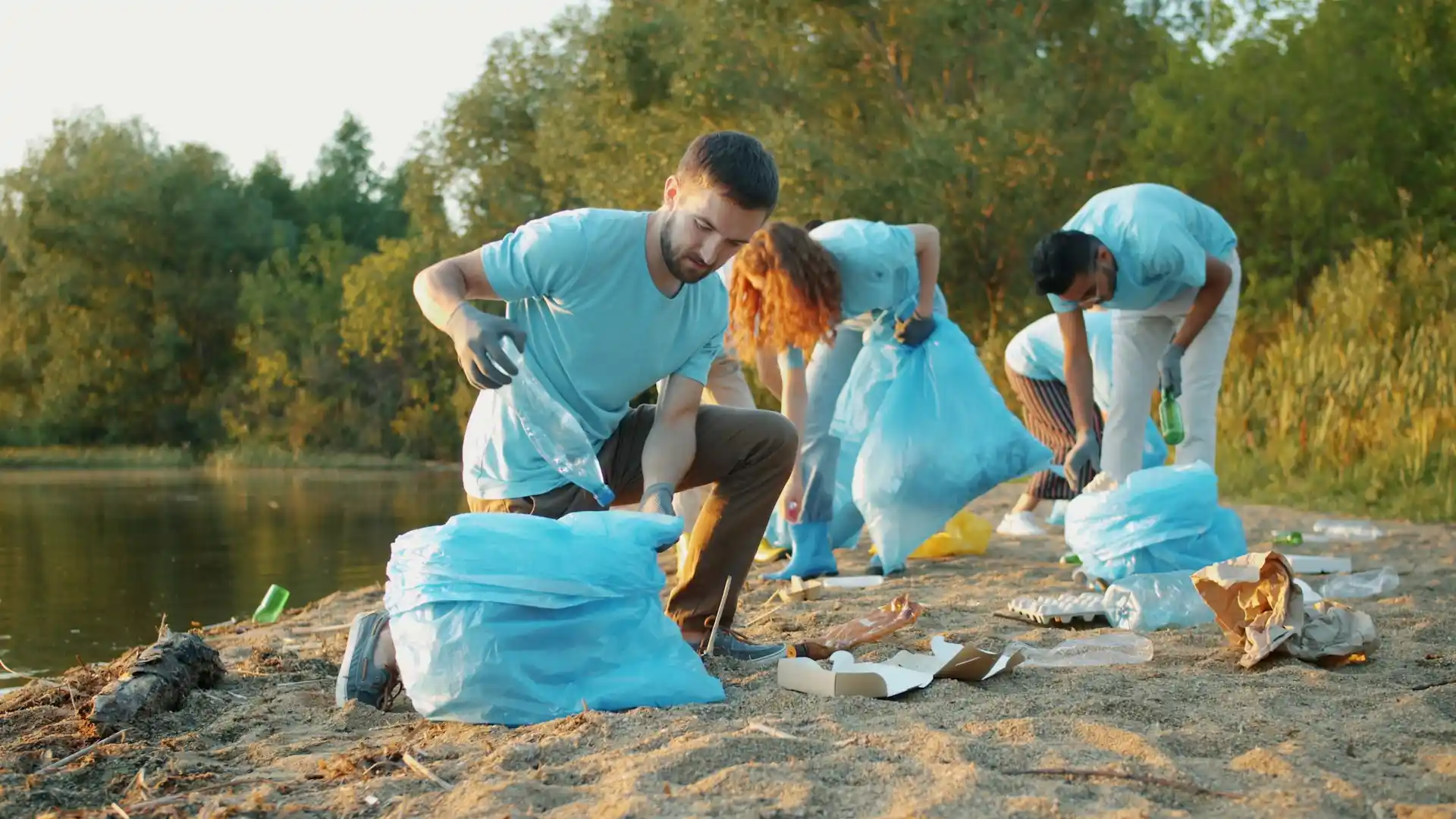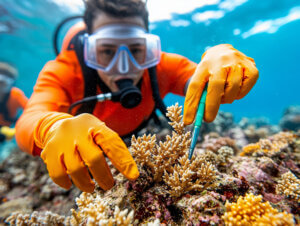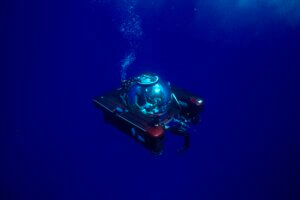Climate Change Impacts on Oceans & Marine Life
The oceans vast, mysterious, and teeming with life cover over 70% of our planet and are our strongest ally in combating global warming. As a massive carbon sink, the ocean absorbs excess heat and CO₂ from the atmosphere, slowing down global temperature rise.
However, this service comes at a tremendous cost. The absorbed heat and gases are reshaping marine ecosystems, causing widespread climate change impacts on oceans that threaten biodiversity and human livelihoods alike.
The Silent Killer: Ocean Warming and Its Impact on Marine Life
Ocean warming is one of the most dangerous climate change impacts on oceans. Rising temperatures affect marine organisms from shallow coral reefs to deep-sea species.
The Great Migration: Species on the Move
Marine animals from fish to whales are moving toward cooler waters as ocean temperatures rise. This forced migration disrupts ecosystems and local fisheries, reducing food security and economic stability for coastal communities.
Marine Heatwaves: A New Reality
Marine heatwaves, once rare, are now longer and more intense. These extreme events cause prey species to relocate, leading to starvation among sea lions and seabirds. Prolonged heat also destabilizes entire marine food webs, worsening biodiversity loss.
How Does Ocean Acidification Harm Marine Species?
The ocean’s role as a carbon absorber creates another threat: ocean acidification. When CO₂ dissolves in seawater, it forms carbonic acid, lowering pH levels and weakening species that rely on calcium carbonate to build shells and skeletons.
The Shell Crisis
Oysters, clams, lobsters, and plankton face difficulty forming shells, threatening entire food chains. Without these foundational species, ocean ecosystems lose balance.
Corals: The Unseen Osteoporosis
Coral skeletons weaken due to acidification, leading to crumbling reef structures. Combined with rising sea temperatures, this represents one of the most severe climate change impacts on marine life.
Why Are Coral Reefs Vulnerable to Climate Change?
Coral reefs, often called the “rainforests of the sea,” house over 25% of all marine species despite covering less than 1% of the ocean floor. Sadly, these vibrant ecosystems are among the most vulnerable to climate change impacts on oceans.
The Bleaching Phenomenon
Rising temperatures cause corals to expel symbiotic algae, turning white in a process known as coral bleaching. Prolonged bleaching leads to coral death and ecosystem collapse.
A Confluence of Threats
Warmer waters, acidification, and stronger storms are pushing reefs beyond recovery limits. Without urgent ocean conservation, coral reef biodiversity could be lost within decades.
The Domino Effect: Climate Change and the Marine Food Web
Changes in temperature and acidity ripple throughout the marine food chain. When plankton and krill populations decline, predators like fish, whales, and seabirds lose essential food sources.
Disrupting the Balance: From Krill to Whales
Shrinking krill populations due to warming seas jeopardize the survival of whales, seals, and penguins. This cascade effect demonstrates how fragile ocean ecosystems are under climate change stress.
The Threat to Global Fisheries
Shifts in fish migration patterns impact global fisheries, putting food security and economies at risk a human consequence of climate change impacts on oceans.
What Protects Marine Ecosystems?
Despite the challenges, hope remains. Conservation, education, and global cooperation can mitigate climate change impacts on oceans and strengthen ecosystem resilience.
Reducing Our Carbon Footprint
Transitioning to renewable energy, reducing waste, and choosing sustainable lifestyles are vital steps toward protecting marine life.
Creating Safe Havens: Marine Protected Areas
Marine Protected Areas (MPAs) serve as sanctuaries where species can recover, reproduce, and adapt. Expanding these protected zones globally is critical.
Sustainable Management
Eco-friendly fishing, responsible tourism, and policy enforcement reduce local pressures and give marine ecosystems a fighting chance to adapt to climate shifts.
The world’s oceans show clear signs of climate change, impacting creatures big and small. Rising temperatures alongside increasing acidity threaten this vast environment, forcing animals to relocate while corals lose their color, a worrying trend for the planet.
The massive challenges before us remain solvable despite their size. Knowledge about the complex links between global warming and marine biological transformations enables us to take meaningful action. Our oceans’ future existence depends on worldwide dedication to emissions reduction, combined with marine habitat protection and sustainable practice implementation.
The oceans need your help. Learn more about how you can support ocean conservation efforts and make a difference. Let’s work together to protect the heart of our planet.
FAQs
Why have oceans absorbed much of the warming from climate change?
Since the 1970s, over 90% of excess atmospheric heat has been absorbed by the oceans, acting as a natural buffer against global warming.
Is every creature in the sea impacted by ocean acidification?
Yes. Acidification harms shell-building species first, but its effects ripple through the entire food web, impacting all marine life.
How do reefs recover from coral bleaching?
Reefs can recover if ocean temperatures return to normal quickly, but repeated bleaching weakens coral resilience over time.
What are simple steps individuals can take to reduce ocean climate impacts?
Reduce energy use, switch to public transport, and follow a plant-based diet to cut your carbon footprint and help protect marine ecosystems.




